Ready-mix concrete batching plants for sale in Ukraine

In Ukraine, the demand for ready-mix concrete batching plants in the construction industry is growing rapidly. With increasing urbanisation and proactive government initiatives in the construction of transport and housing facilities, these plants are playing a key role in providing high quality concrete for various infrastructure and commercial projects.
As an expert in this field, I will explore the types of batching plants available, both stationary and mobile. Each type of equipment has its own unique benefits and can meet the needs of different projects. With in-depth knowledge of leading manufacturers and the key factors to consider when buying, this article provides a comprehensive guide for potential buyers in the dynamic Ukrainian market.
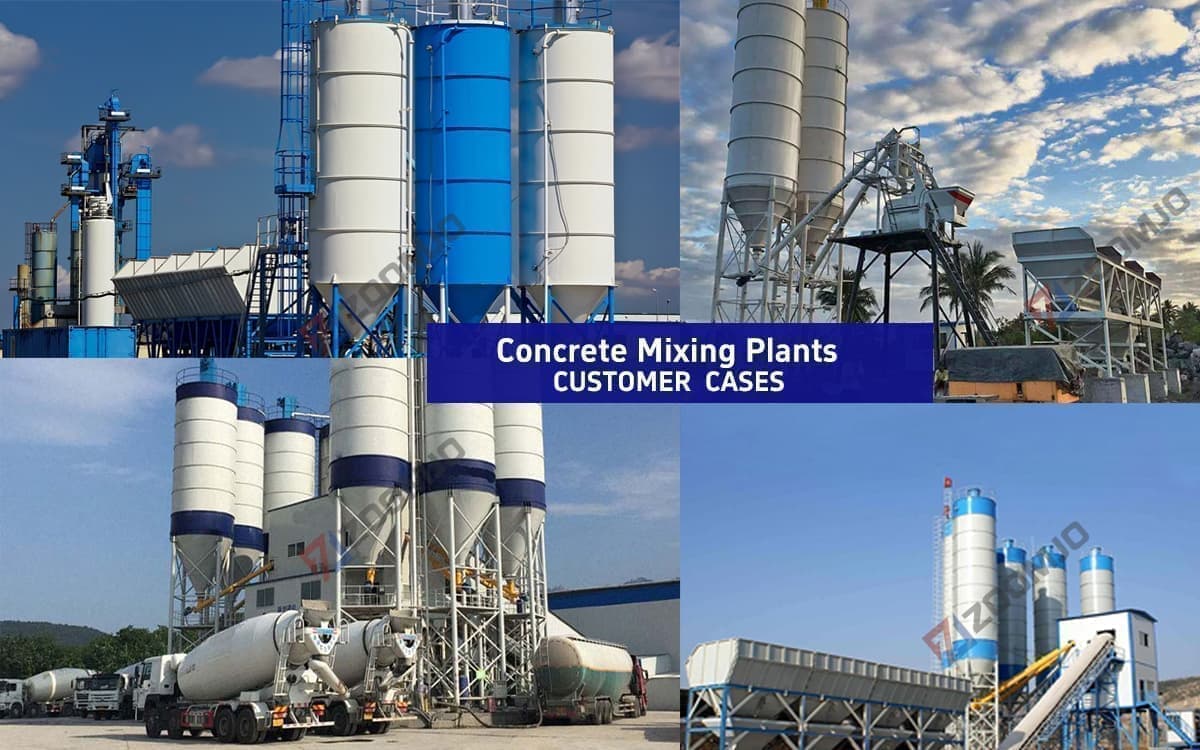
Overview of Ready Mix Concrete Batching Plants in Ukraine
Ready-mix concrete batching plants have become an important part of the Ukrainian building and construction market, supplying key materials for infrastructure projects, property development and commercial construction. These concrete batching plants are specifically designed to efficiently and consistently produce high grade concrete to meet the demands of numerous construction projects across the country. As the building and construction industry in Ukraine continues to expand, the demand for reliable and efficient concrete batching plants is also increasing significantly.
The role of ready-mix concrete batching plants
In the Ukrainian building and construction industry, ready-mix concrete batching plants play a vital role in ensuring that concrete is delivered to the construction site in a timely manner. The ability of these plants to produce concrete that meets specific durability and toughness requirements is critical to the long-term success of any construction project. The ability to produce concrete on demand and in quantity not only reduces product waste, but also increases project efficiency.
Types of batching plants available in Ukraine
In Ukraine, there are two main types of ready-mixed concrete batching plants available: stationary and mobile. Each type has its own unique advantages and is suitable for different construction environments:
| Type | Features | Application Scenarios |
|---|---|---|
| Stationary batching plant | High production capacity, suitable for large tasks | Frame work, large commercial constructions |
| Mobile batching plant | Highly flexible, easy and quick to set up | Small and medium-sized projects, remote sites |
Current market trends
The Ukrainian market has witnessed a surge in demand for ready-mixed concrete batching plants due to increasing infrastructure development and urbanisation. This demand is further fuelled by the government's focus on enhancing transport networks and construction of real estate facilities. In addition, the use of modern technologies, such as automation and real-time monitoring systems, is gaining popularity in batching plants, thereby improving the performance and quality of concrete production.
As an expert in this field, I have noticed that potential buyers in Ukraine are showing increasing interest in energy-efficient and environmentally friendly batching plants. This change stems from both regulatory requirements and reflects an increased awareness of sustainable building practices.
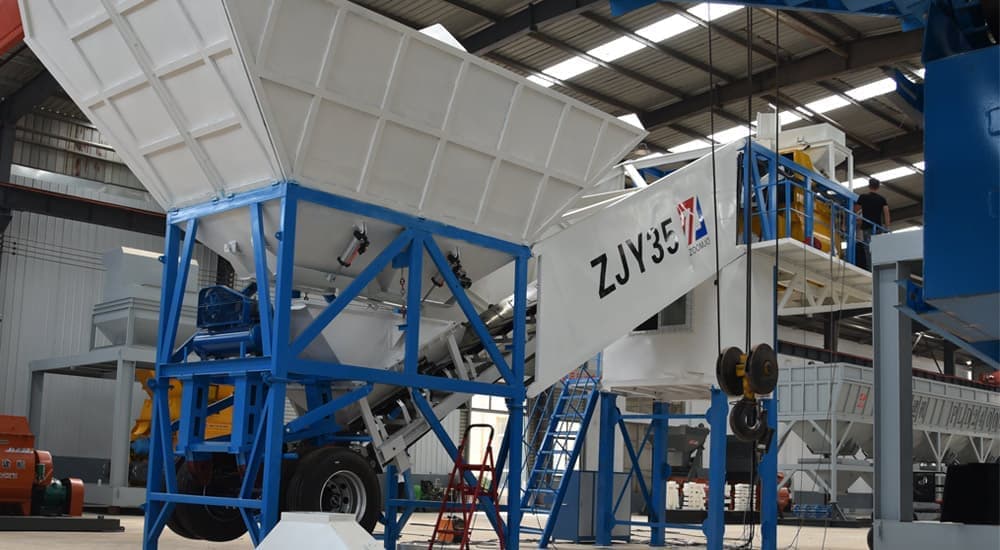
Important features to consider when buying a batching plant
Production capacity
The first thing to consider when evaluating a ready-mix concrete batching plant is its production capacity, i.e. the amount of concrete that can be produced in a specified period of time ( usually measured in cubic metres per hour ). Ensure that the capacity of the plant matches the needs of the project for efficient, continuous production.
Level of automation
The level of automation in a batching plant can significantly affect its efficiency and ease of use. Modern equipment is often equipped with advanced control systems that allow for accurate measurement and mixing of materials. The choice of a fully or semi-automated system should be based on the actual requirements. It should be noted that the higher the level of automation, the greater the initial investment will usually be, but it will reduce labour costs and reduce the incidence of errors.
Adaptability and mobility
Flexibility is another important factor. Some projects may require mobile equipment that can be moved quickly to different locations, while other projects may be more suited to fixed equipment for long-term use. Assess the nature of the construction work to determine the most appropriate equipment.
Durability and build quality
The durability and build quality of your equipment is critical to ensuring its long-term use and maintenance. Look for equipment that is manufactured using high-quality materials to cope with the harsh conditions common on construction sites. Also, consider the manufacturer's reputation in the marketplace and the warranties they offer.
Compatibility with raw materials
Ensure that the chosen dosing equipment is compatible with the base materials you plan to use. Some equipment is designed to handle specific types of piles or mixtures, and incompatible materials can lead to equipment failure or damage.
Ecological Considerations
As awareness of sustainability grows, the environmental impact of dosing stations should be considered. Try to select equipment with features such as dirt collection systems, water reuse capabilities and energy saving features, which not only help to minimise the environmental impact, but also save money in the long run.
Cost and return on investment
Finally, while the initial investment is an important factor, it is also vital to consider the overall financial return on investment. This includes operating costs, maintenance expenses, and potential downtime. Making more of an upfront investment in high-quality equipment may lead to reduced expenses and better overall success in the long run.
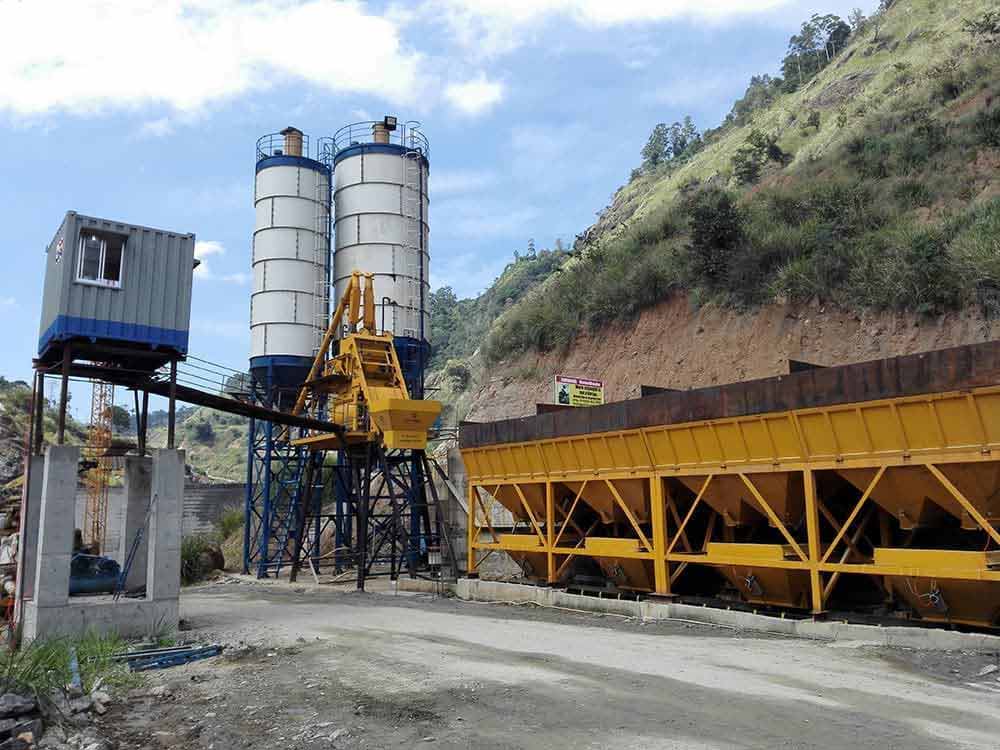
Leading manufacturer of ready-mixed concrete plants in Ukraine
With the booming construction industry in Ukraine, the demand for ready-mix concrete batching equipment has grown significantly. Many manufacturers are emerging in the market, offering diverse products to meet the varying needs of the construction industry. Below are a few of the leading manufacturers in the region.
ZOOMJO
ZOOMJO is a well-established name in the building and construction equipment industry, specialising in high-grade ready-mix concrete mixing plants. Its equipment is renowned for its robust construction, excellent performance and advanced technology, covering both mobile and stationary plants, capable of meeting the demands of a wide range of construction tasks.
ELKON
ELKON is another notable player in the Ukrainian market, offering a wide range of concrete batching plants. These plants are noted for their advanced layout and energy-saving systems, utilising innovative automation technology to ensure precise control and high performance.
Liebherr
Liebherr is a leading global manufacturer of construction equipment and also has an extensive presence in Ukraine. Their ready-mixed concrete batching plants are renowned for their durability and reliability, and their focus on providing individual solutions to meet the specific needs of their customers has made them the first choice for many construction companies.
MEKA
MEKA is a reputable manufacturer of concrete batching plants, offering a wide range of products from portable to large-scale plants.MEKA's plants are characterised by high efficiency and excellent performance, and are suitable for a wide range of construction projects.
Eurotec
Eurotec is well known for their innovative ready-mix concrete batching plants. They are favoured by environmentally conscious companies because they are designed with sustainability in mind, use environmentally friendly modern technology and are committed to reducing their ecological impact.
| Manufacturers | Main features |
|---|---|
| ZOOMJO GROUP | Robust construction, advanced technology, mobile and stationary options |
| ELKON | Clever layout, energy efficiency, innovative automation technology |
| Liebherr | Flexibility and reliability, personalised service |
| MEKA | High performance, high efficiency, wide product range |
| Eurotec | Environmentally friendly design, modern technology |
These manufacturers play an important role in supporting the Ukrainian construction industry by providing advanced ready-mixed concrete batching plants for different job requirements. Their commitment to quality and innovation keeps them at the forefront of this open market.
Mobile Batching Plant vs Stationary Batching Plant
When considering ready-mix concrete batching plants for sale in Ukraine, it's crucial to understand the differences between a mobile batching plant and a stationary batching plant. Each type has its own unique advantages and is capable of meeting the needs of different tasks.
Mobility and flexibility
Designed for ease of transport and quick set-up, mobile batching plants are best suited to projects that require regular relocation or are located in remote areas. These units can be easily moved from one location to another, providing excellent versatility. In contrast, stationary batching plants are permanently installed in one location, providing a stable and continuous production environment, and are more suited to long-term, large-scale projects.
Installation and set-up
The installation process for mobile dosage plants is usually quicker and simpler than for fixed plants. Mobile systems are usually pre-assembled and can be deployed quickly with little structural work. Stationary dosage plants, on the other hand, require a more complex installation procedure, including the construction of a solid foundation to support the weight of the plant and ensure stable operation.
Production capacity
Stationary batching plants typically have greater capacity, with larger mixers and storage facilities, to produce large quantities of concrete efficiently. This makes them ideal for infrastructure development and large industrial projects. In contrast, mobile batching plants are better suited to small to medium sized tasks where speed and flexibility are more important than throughput.
Cost considerations
Due to the smaller size and simplified configuration requirements of a mobile batching plant, the initial investment is usually lower than that of a fixed batching plant. However, long-term operating costs need to be considered, depending on how often the equipment is moved and maintained. On the other hand, although fixed dosage plants have higher upfront costs, they can often reduce unit manufacturing costs through economies of scale.
Environmental Impact
The two types of batching plants also differ in terms of environmental impact. Mobile batching plants have a lower ecological impact due to their compact design and smaller land footprint, but their frequent movement may lead to increased emissions. Stationary batching plants, although initially requiring more land and resources, can improve energy efficiency and waste monitoring, thereby reducing long-term ecological impacts.
The above comparison shows that the selection of the right type of batching plant should be based on specific project needs, budget and the construction environment.
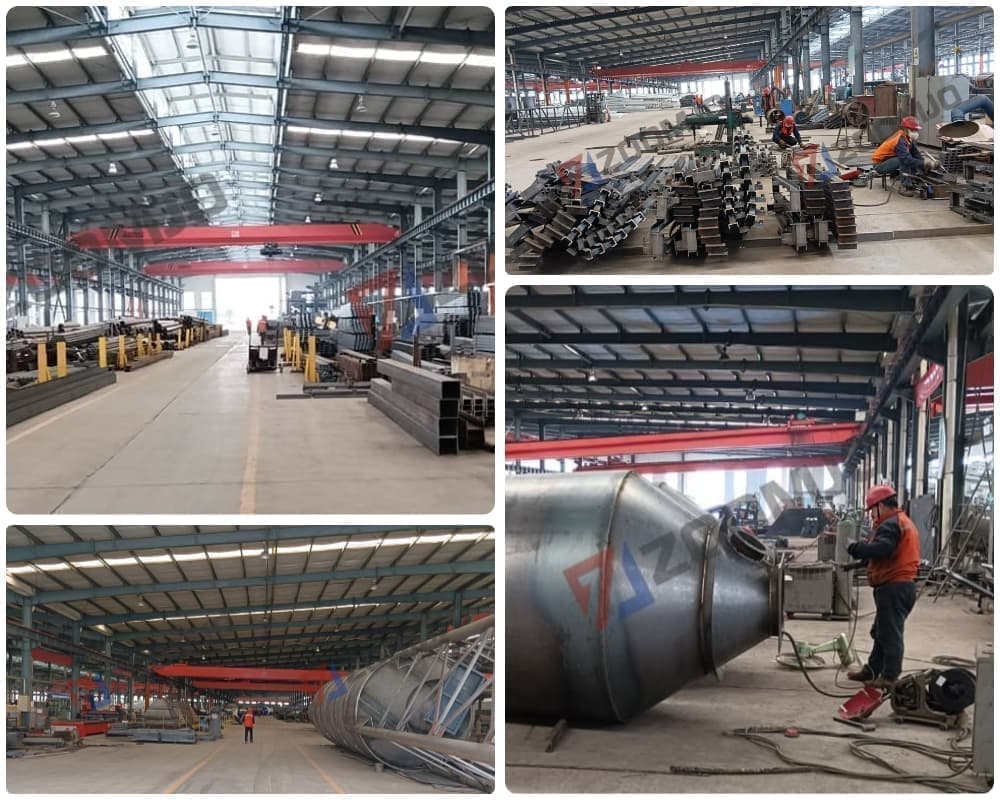
Factors affecting the cost of batching plants in Ukraine
The cost of ready mix concrete batching plants for sale in Ukraine is affected by several factors. Understanding these factors is critical to making an informed buying decision. Below are the key factors that influence the pricing of these important construction attributes.
Type of batching plant
The type of batching plant - whether mobile or fixed - can have a significant impact on costs. Mobile batching plants are usually more expensive because they are easier to transport and simpler to configure, while stationary batching plants are larger, have a longer lifespan, and are able to reduce unit costs by increasing capacity.
Capacity
The capacity (in cubic metres per hour) of a batching plant is an important component of cost. The higher the production capacity, the greater the investment in equipment and technology required and therefore the cost will naturally increase.
Brands and Manufacturers
The reputation and integrity of the manufacturer will also affect the cost. Well-known brands are usually more expensive due to their reliable track record and excellent after-sales service. However, buying a reputable brand can lead to long-term financial savings by reducing maintenance requirements and improving operational efficiency.
Technical features
Advanced technological features such as automation, precision control systems, and energy-efficient components can increase the price of a batching plant. However, over time, these technologies typically improve efficiency and reduce operating costs.
Individualisation and specification
Customisation to meet specific job requirements can also affect costs. Special attributes, style requirements or additional features tailored to specific needs will inevitably increase total expenditure.
Market demand and supply
Market dynamics, including current demand and supply conditions for Ukrainian dosing equipment, can also affect pricing. High demand or lack of supply may lead to higher prices, while a saturated market may offer more competitive pricing.
| Influencing Factors | Description |
|---|---|
| Equipment Type | Mobile equipment is usually more costly than stationary equipment. |
| Production capacity | Higher capacity comes with higher costs. |
| Brand and Manufacturer | Well-known brands may have higher upfront costs, but are more reliable. |
| Technology features | Advanced technology usually raises the price, but also improves efficiency. |
| Personalisation | Specific customisation increases total cost. |
| Market Demand | High demand or reduced supply can push up costs. |
Taking these factors into account, potential buyers can better understand the price situation for ready-mix concrete batching plants in Ukraine and make informed decisions based on construction needs and budget constraints.
How to choose the right batching plant for your construction needs
When considering the purchase of a ready-mix concrete batching plant in Ukraine, it is vital to analyse the specific requirements of the building and construction operation. The right choice can increase efficiency and productivity, while the wrong choice can lead to operational hurdles. Here are some important considerations to help you make your decision.
Analyse project requirements
First, review the size and scope of the construction task to determine the amount of concrete that needs to be produced and the frequency of its production cycle. For large projects, high-capacity batching plants may be required, while smaller projects may be suited to more compact equipment.
Consider the type of batching plant
There are two main types of batching plants: mobile and stationary. Mobile concrete batching plants are versatile and suitable for jobs that require frequent relocation, while stationary batching plants are suitable for long-term projects that require continuous, high-volume production. Evaluate the nature of your project to determine which type best meets your needs.
Evaluate technology and features
Modern batching plants are equipped with a range of technologies and features to enhance performance and quality. Look for equipment with automated control systems, which will reduce human error and improve the accuracy of concrete mixing. Also consider equipment that offers energy-efficient operation to minimise environmental impact and reduce operating costs.
Analysing costs and budgets
The cost of a ready-mix concrete batching plant varies depending on its capabilities, features and manufacturer. When creating a budget, it is important to consider not only the initial purchase price, but also long-term expenses such as maintenance and power consumption. Ensure that there is a balance between price and quality of equipment to ensure a sound investment.
Research manufacturers and suppliers
Conduct a thorough research on leading Ukrainian manufacturers and distributors of batching equipment to find companies with a good reputation for quality and reliability. Consumer reviews and testimonials can help you gain insight into the efficiency and durability of their products.
Consider legal and environmental regulations
Ensure that your chosen batching plant complies with local laws, regulations and ecological standards. In Ukraine, there are specific requirements for the legal operation of a batching plant, and knowing these requirements can avoid potential legal problems and ensure the sustainability of the operation.
By following these steps, you will be better able to choose the right ready-mixed concrete batching plant for your construction needs, optimising project efficiency and reducing operational risks.
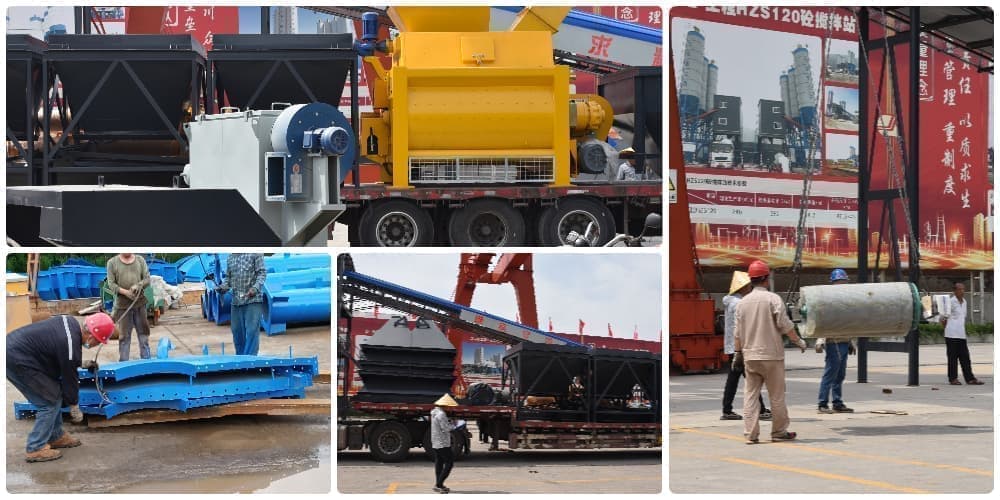
Tips for Maintaining and Operating a Ready Mixed Concrete Batching Plant
To ensure efficient routine maintenance of your batching plant, here are some important strategies and best practices:
Routine Maintenance Checks
Inspect the batching plant regularly to ensure that all components are in optimal working condition. Focus on checking mixers, conveyors and weighing systems, and lubricate and clean them regularly to prevent damage, thus extending the life of the equipment.
Equipment Calibration
Accurate calibration of key components is critical to producing high quality concrete. Regular calibration helps ensure that mix proportions meet project specifications.
Employee Training and Safety Procedures
Ensuring that the team is trained to operate the dosing equipment is critical. Training should cover operating procedures and safety measures to minimise the risk of accidents. Implementing an effective safety programme can significantly reduce downtime and increase efficiency.
Supply Management
Effective inventory management of raw materials such as concrete, aggregates and admixtures is critical to smooth operations. Maintaining optimum stock levels helps to avoid production stoppages, and the use of just-in-time inventory systems helps to manage supplies efficiently.
Environmental and Legal Compliance
Adherence to eco-policies is vital to the operation of a batching plant, including the treatment of dust emissions, wastewater treatment and noise control. Compliance with legal requirements not only avoids fines, but also promotes sustainable development.
Monitoring and data analysis
Tracking plant operations using modern technology can provide an important basis for understanding efficiency metrics. Data evaluation helps to identify deficiencies and make improvements, thereby improving overall operational efficiency.
Maintenance Task Scheduling
| Regularity | Function |
|---|---|
| Lubrication | Weekly to reduce wear |
| Calibration | Monthly to ensure mix accuracy |
| Safety and Security | Quarterly training to enhance safety and security |
| Inventory checks | Fortnightly to maintain stock levels |
The above measures can effectively improve the efficiency of the daily maintenance work of the dosage station and ensure that the equipment is always in the best condition, thus improving productivity and prolonging the service life of the equipment.
Frequently asked questions about ready-mixed concrete batching plants in Ukraine
What is a ready-mix concrete batching plant (RMC plant)?
Ready Mix Concrete (RMC ) is concrete that is produced in a centralised batching plant according to the requirements of a specific project, and is transported to the construction site in a "ready-to-use" state after production. It is produced and transported to the construction site in a "ready to use" state.The RMC production process involves mixing cement, aggregates, water and admixtures in proportions that ensure consistency and quality control.
What is the difference between an RMC plant and a batching plant?
-
Ready Mixed Concrete (RMC): produced in a centralised plant with controlled production conditions, thus ensuring consistency and quality control of the concrete.
-
Batching Plant: Concrete is mixed at the construction site, this approach offers greater flexibility in proportioning design but can lead to inconsistent quality control.
What are the main types of ready-mix concrete batching plants for sale in Ukraine?
There are two main types of ready-mix concrete batching plants in Ukraine: stationary and mobile. Stationary batching plants are suitable for large projects and permanent installations, while mobile batching plants are suitable for remote or smaller projects due to their flexibility and quick installation.
Why is the demand for ready-mixed concrete batching plants growing in Ukraine?
The growth in this demand is primarily due to the continued expansion of the Ukrainian construction industry in terms of infrastructure development and urbanisation. This demand is further fuelled by the government's focus on improving transport networks and housing facilities.
What factors should be considered while buying batching plants in Ukraine?
Key considerations include the capacity of the equipment, the degree of automation, flexibility and manoeuvrability, durability and environmental impact. It is also important to assess compatibility with raw materials as well as cost and return on investment.
What are the major ready-mix concrete batching plant manufacturers in Ukraine?
Major manufacturers include ZOOMJO GROUP, ELKON, Liebherr, MEKA, and Eurotec.These companies are widely recognised for the quality of their products, their innovation, and their commitment to meeting a wide range of construction needs. Contact concrete batching plant manufacturers today for the latest concrete batching plant quotes!
What are the advantages of a mobile batching plant over a stationary batching plant?
Mobile batching plants are easy to transport and quick to install and are particularly suitable for projects that require frequent relocation, while stationary batching plants have a higher capacity and are more suitable for long-term, large-scale projects.
What factors affect the cost of batching plants in Ukraine?
Factors affecting the cost include the type of equipment (mobile or stationary), production capacity, brand and manufacturer reputation, technical characteristics, customisation requirements, and market supply and demand dynamics.
What are some tips for maintaining and operating a ready mix concrete batching plant?
Regular maintenance checks, equipment calibration, staff training, effective inventory management and monitoring of operations through data analytics are essential to optimise batching plant performance. At the same time, compliance with environmental and legal standards is an important aspect that cannot be ignored.

 English
English  Español
Español  简体中文
简体中文  Pусский
Pусский  українська
українська 
